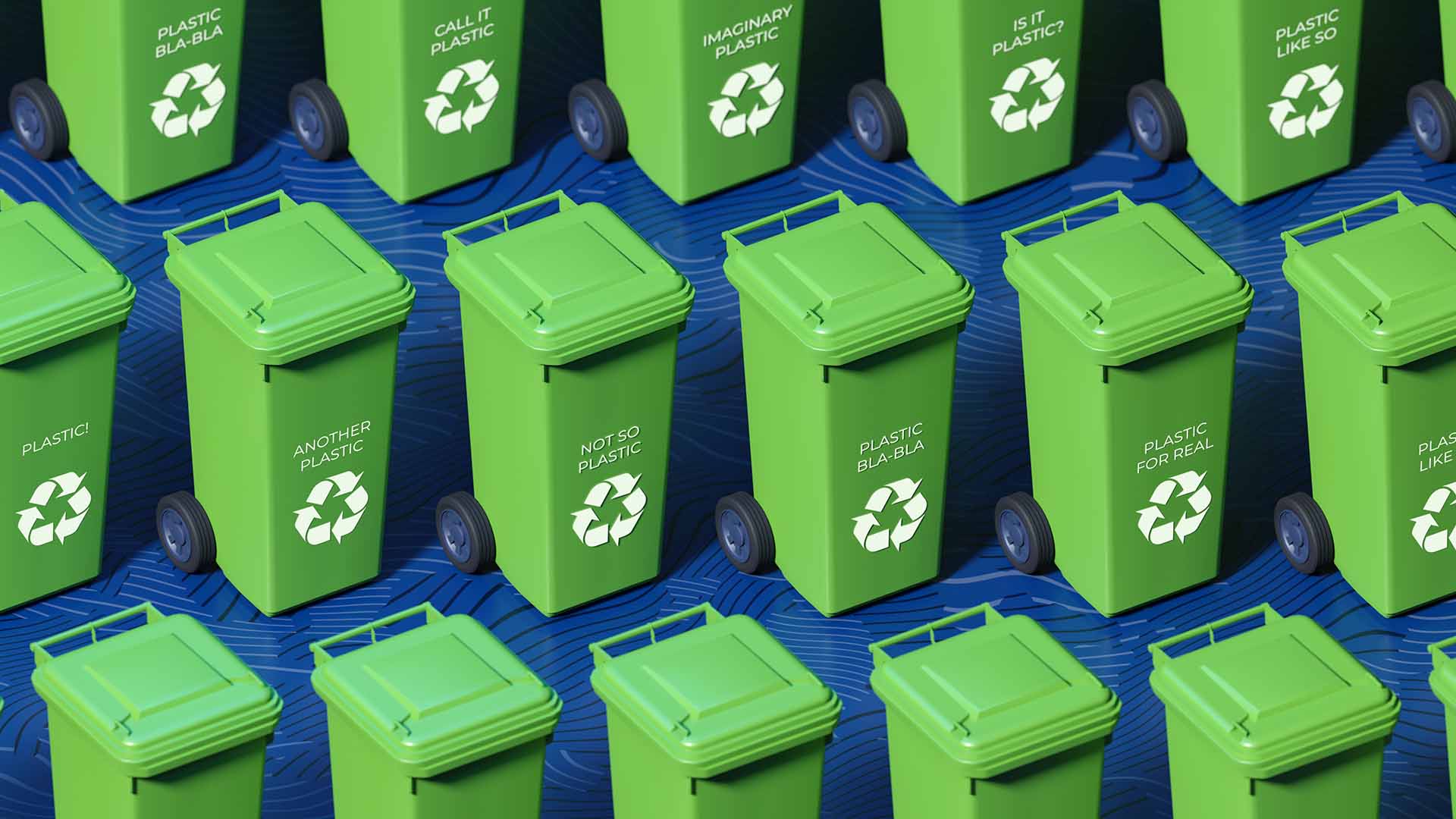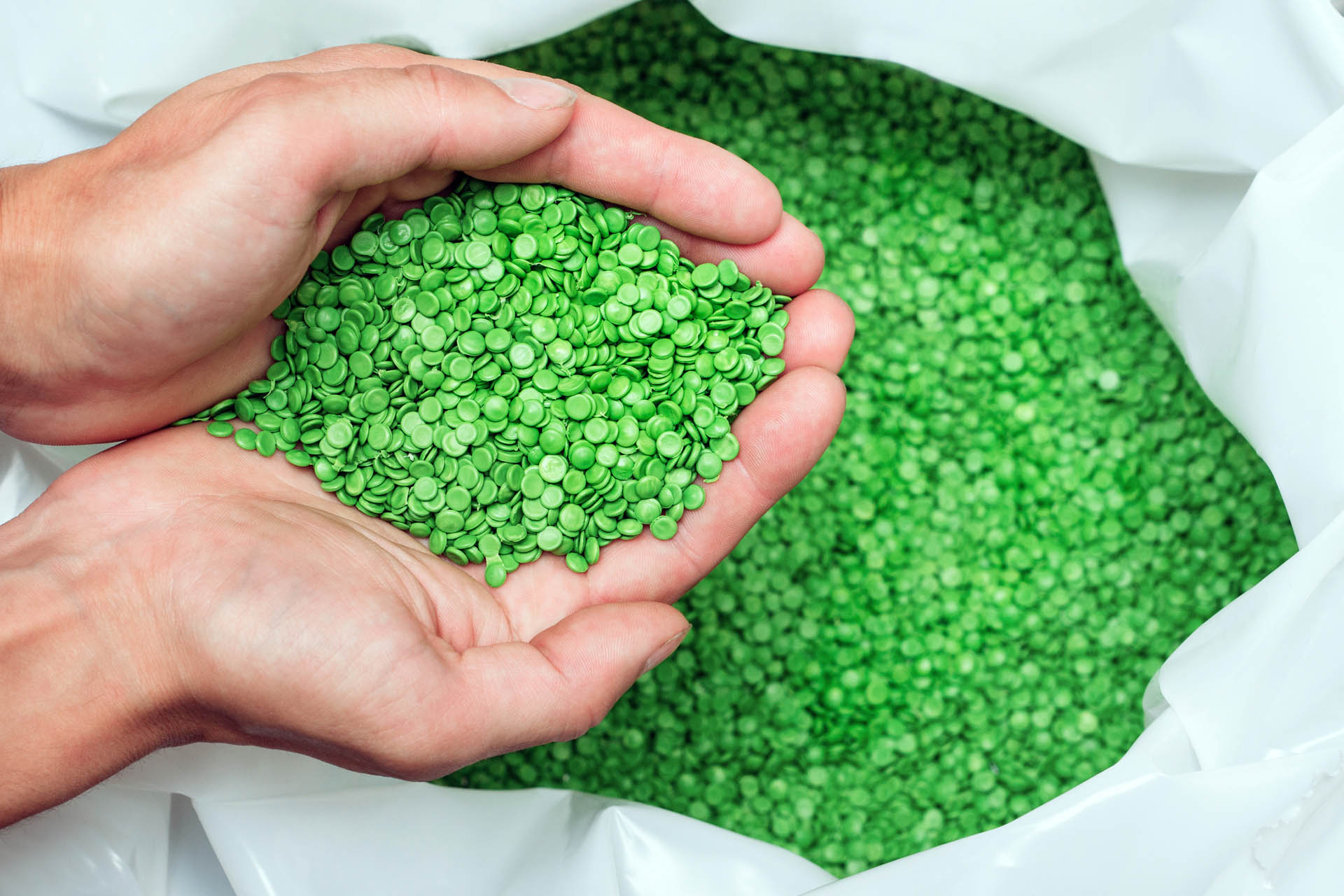Do you know what non-wovens are? If you don’t, that’s OK – few people do. Nonetheless, they are an essential part of our everyday lives. They can be found in the clothes we wear, the cushioning of our car seats, the insulation in our homes, and many other essential items. Wet wipes are also non-wovens, and they have become indispensable in most European households. Wet wipe production in Europe alone has grown by 22% to 425.000 tons or 9.7 billion square meters, an area the same size as 1,358,543 standard football pitches.
Most of the wipes made in Europe consist of synthetic fibres made from crude oil. If not disposed of properly, they can remain in the soil, water and air for decades as micro-plastics inevitably enter the animal and human food chain.
But there are alternatives. A small, albeit growing, proportion of wipes comes from renewable cellulosic materials, like wood. These wipes already start disintegrating when they are flushed down the toilet. They are designed to biodegrade in different environments within just a few weeks after use, without leaving any harmful residues in nature.
Because plastic is such a persistent material, there are long-term ecological, economic and eco-toxicological effects of plastic pollution. The European Union has moved to tackle the problem of plastic waste with various policies, regulations and other measures, including the Single Use Plastics Directive (SUPD), which came into force in July 2021.
An absent friend
However, biodegradability was omitted from the directive. Before the SUPD was agreed, there were extensive debates on what should be considered plastic, but the final definition that the EU settled on left out any consideration of the biodegradability and compostability of a product. The stated reason for the omission was a lack of a harmonised EU biodegradability standard.
This omission will weaken the EU’s environmental efforts and its absence fundamentally undermines its Single Market in the context of its nascent circular economy and bioeconomy.
Biodegradability should be seen as a vital asset when it comes to stemming pollution. The lack of a uniform biodegradability standard and its subsequent exclusion from the SUPD has major consequences: it damages the environmental and economic policy objectives, frustrates previous industry efforts, and hinders innovation.
The impact of the decision to overlook biodegradability will also be felt across the economy. Innovative companies producing bio-based and biodegradable alternatives to household products, including hygiene and sanitary applications, might no longer have an incentive or competitive advantage over companies using oil-based fibres. And from a consumer perspective, there will be little to distinguish between an oil-based plastic product and a degradable product that must nevertheless be labelled as plastic: they might appear equally harmful to the environment.
There are other risks. If the SUPD is implemented unevenly within Europe, it will create uncertainty for businesses, who will then choose the markets where their biodegradable products will still be competitive and economically viable. And there are deeper, political challenges: the EU will eventually have to address how these restrictions on the bioeconomy undermine their circular economy ambitions.
A review of the SUPD is scheduled for 2027, and it should reflect scientific and technical progress concerning biodegradability criteria. The Commission has already said it plans to develop a policy framework on the use of biodegradable or compostable plastics in 2022.
At Lenzing Group, we have pioneered sustainable textiles and nonwovens for decades. We will continue to advocate for harmonised EU-wide rules on biodegradability as vital if the EU is to meet the ambitious environmental targets that it has committed to.
To accomplish policy objectives, evidence-based regulation is needed that also sets positive and negative incentives for a feasible transition. One that is practical and addresses the many differrent dimensions relating to the issue such as the SUPD, the upcoming Waste Directive, state-of-art technology and consumer behavior. The overarching objective is to reduce the actual environmental net impact: a gradual reduction of synthetic fiber content in wovens and in non-wovens, in line with an increase in separability, recyclability, and post-consumer household collection rates of mixed fabrics.

All of this could be regulated and implemented undogmatically and within what is technically possible and what can practically be expected from consumers. In this, single use non-wovens ought to remain permitted where a product is essential for society and functionally non-interchangeable, as in the case of hygiene wipes in the health sector.
This also applies where a single-use product is deemed non-essential or is functionally interchangeable if the available multi-use alternative is more harmful to the environment – as is the case with fully degradable or compostable household wipes which are vastly superior on balance to, e.g., multi-use cotton wipes that would need to be laundered with chlorine bleach or at 90 degrees after each use to ensure user hygiene and consumer health.
Only even application of identical standards across Europe will create economies of scale and consumer buy-in needed. It is up to the European Commission to take the lead and enforce a coherent application of EU legislation across all EU Member States.
The European Union has moved to tackle the problem of plastic waste with various policies, regulations and other measures, including the Single Use Plastics Directive (SUPD), however, biodegradability was omitted from the directive.
From a consumer perspective, there will be little to distinguish between an oil-based plastic product and a degradable product. There are deeper, political challenges: the EU will eventually have to address how these restrictions on the bioeconomy undermine their circular economy ambitions.

